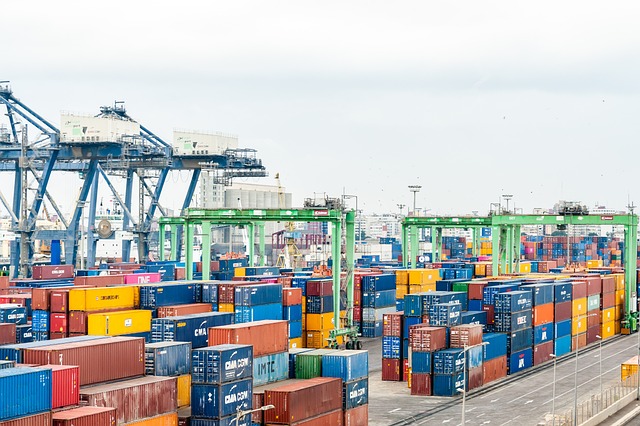How to Trade Crypto in China: A Comprehensive Guide
Author: Jameson Richman Expert
Published On: 2024-10-29
Prepared by Jameson Richman and our team of experts with over a decade of experience in cryptocurrency and digital asset analysis. Learn more about us.
Cryptocurrencies have gained immense popularity over the past decade, with many investors looking to capitalize on the volatility of digital assets. However, trading cryptocurrency in China presents a unique set of challenges due to the country's strict regulations surrounding digital currencies. This article will explore the current landscape of cryptocurrency trading in China, offering practical tips and insights for both seasoned investors and newcomers alike.

The Current State of Cryptocurrency Trading in China
In recent years, the Chinese government has taken a stern stance on cryptocurrency trading and initial coin offerings (ICOs). In September 2017, the People's Bank of China (PBOC) officially banned ICOs, declaring them illegal financial activities. Following this, trading platforms for cryptocurrencies such as Bitcoin and Ethereum were shut down, further discouraging domestic investors.
Despite these restrictions, interest in cryptocurrency remains high in China. Many traders continue to find ways around government controls, leading to a vibrant underground market. However, potential traders should exercise caution, as regulatory crackdowns can lead to significant legal repercussions.
Understanding the Regulatory Environment
Before diving into cryptocurrency trading, it is essential to understand the regulatory framework that governs digital assets in China. The Chinese government has articulated its concerns about issues such as financial fraud, money laundering, and the potential for capital flight. Consequently, the government has implemented various restrictions intended to protect investors and maintain financial stability.
Key Regulations Impacting Crypto Trading
- 1. **Ban on ICOs**: ICOs are prohibited in China, meaning that any project intending to raise funds through this method cannot legally operate in the country.
- 2. **Trading Platform Closures**: Numerous domestic trading platforms have been shut down, which has pushed many Chinese investors to foreign exchanges.
- 3. **Cryptocurrency Wallet Regulations**: While wallets are still legal, they are subject to strict oversight. Users should always verify the legitimacy of their wallets before proceeding.
- 4. **Transactions and Taxation**: Cryptocurrency transactions may still be taxable, and reporting requirements vary depending on the type of transaction.
Choosing a Trading Platform
When trading cryptocurrencies in China, choosing the right platform can significantly influence your experience and profitability. Since many domestic exchanges have been shut down, traders often turn to international platforms. Here are some crucial factors to consider:
1. Security and Trustworthiness
Security should be your top priority. Look for platforms that offer multi-factor authentication, cold storage for assets, and positive reviews from other users. Conduct thorough research and ensure that the platform has a reputable standing within the crypto community.
2. User Experience
A user-friendly interface is vital for efficient trading. Consider platforms that provide intuitive navigation, educational resources, and responsive customer service. This is particularly true for newcomers who may feel overwhelmed by complex trading options.
3. Available Cryptocurrencies
Different platforms support various digital assets. Make sure to choose a platform that offers the cryptocurrencies you wish to trade. Popular coins like Bitcoin, Ethereum, and Litecoin are often available, but newer coins may only be found on specific exchanges.
4. Trading Fees
Every platform charges trading fees, which can significantly affect your profit margins. Compare different platforms to find the one that offers the most competitive rates without sacrificing security and user experience.
Navigating Payment Methods
After selecting a trading platform, the next step involves funding your account. In China, traditional payment methods may be restricted due to government regulations. Here are the most common payment methods available:
1. Cryptocurrency Transfers
If you already own cryptocurrencies, you can easily transfer them to your trading platform. This method allows for quick and relatively anonymous transactions, minimizing the risk of regulatory scrutiny.
2. Peer-to-Peer (P2P) Transactions
P2P exchanges facilitate transactions directly between users. This allows you to buy cryptocurrencies using local payment methods such as bank transfers, WeChat, or Alipay. However, always exercise caution and ensure the other party is trustworthy.
3. International Payment Platforms
Some traders use international services to fund their accounts, but users should understand the risks associated with these methods. Legal implications and potential complications should never be taken lightly.

Trading Strategies for Success in China
With the regulatory landscape constantly changing, successful trading requires a solid strategy. Here are some strategies tailored to China’s unique market:
1. Long-Term Investment vs. Day Trading
Decide whether you will pursue a long-term investment approach or engage in active day trading. Long-term strategies may yield more stable outcomes, while day trading can capitalize on short-term price fluctuations. Each approach requires careful planning and market analysis.
2. Stay Informed
Staying updated on local and global cryptocurrency news is essential for effective trading. Changes in regulations, market sentiment, and technological advancements can all impact your trading strategy. Consider following reputable news outlets and joining online communities to exchange insights.
3. Risk Management
Develop a comprehensive risk management strategy, including clearly defined entry and exit points, as well as stop-loss and take-profit orders. This will help protect your investments while maximizing potential returns.
4. Diversification
To mitigate risk further, diversify your crypto portfolio. Holding multiple currencies can help cushion against volatility in any single asset. Always be cautious, as putting all your eggs in one basket can lead to significant losses.
Tax Considerations for Crypto Traders in China
While the Chinese regulatory environment is stringent, understanding tax obligations is vital for anyone trading cryptocurrencies. Here are key points to consider:
1. Reporting Requirements
It’s crucial to maintain accurate records of all transactions. Consulting with a tax professional familiar with cryptocurrency regulations in China can help ensure compliance and avoid penalties.
2. Capital Gains Tax
Gains made from the sale of cryptocurrencies have potential tax implications. Familiarize yourself with local laws to understand any obligations you may have regarding capital gains tax.
The Future of Crypto Trading in China
The future of cryptocurrency trading in China is uncertain, as the landscape continues to evolve. Observers have speculated that regulations may loosen in response to the growing global acceptance of digital currencies, while others fear more stringent measures are on the horizon.
As global interest in cryptocurrencies continues to grow, Chinese investors may find more opportunities for legitimate trading. Innovations such as blockchain technology and the development of Central Bank Digital Currencies (CBDCs) may open avenues for regulated trading practices.
The Role of Innovation and Technology
Innovations in blockchain technology can impact not only the trading of cryptocurrencies but also regulatory practices. As the Chinese government becomes more accustomed to the technology, it may lead to a more open trading environment.
Developments in CBDCs
China has been a pioneer in exploring Central Bank Digital Currencies, with the Digital Yuan already being tested in various regions. The successful implementation of CBDCs may pave the way for a more structured and safer environment for cryptocurrency trading, though it will not come without its challenges.

Conclusion: Proceed with Caution
Trading cryptocurrency in China comes with its own set of complexities, requiring traders to navigate a challenging regulatory environment. As the market continues to evolve, diligent research, strategic planning, and risk management are critical for success.
For those considering entering the world of cryptocurrency trading in China, it is essential to remain informed, stay cautious, and always consider the regulatory implications of your actions. By adhering to these principles, traders can maximize their chances of success while mitigating potential risks.
With the future of cryptocurrencies hanging in the balance, the upcoming years will undoubtedly shape the trading landscape in China. Only time will reveal the extent of the opportunities that await eager investors.